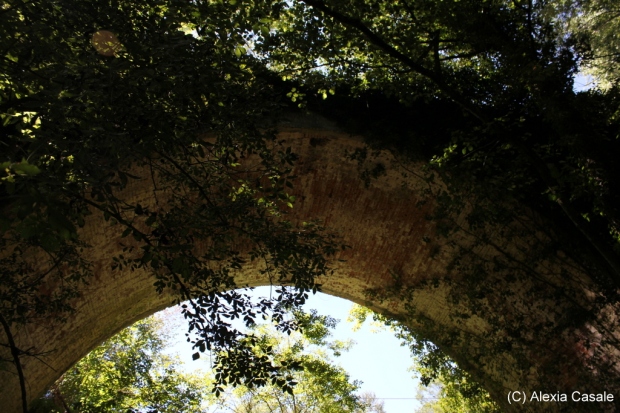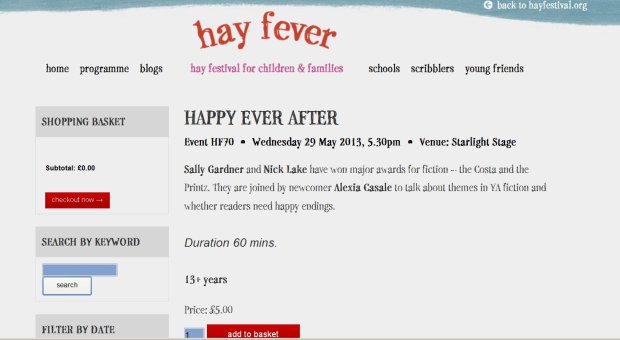At an impromptu event for the Northern Children’s Book Festival in November, a lovely thing happened: after the formal Q&A bit, when I was sitting smiling nervously around at everyone and hoping someone there would want to talk to me, Chloe Armstrong came over and asked me if I’d listen to one of her poems. The moment she’d finished, I asked if I could read the other one I could see lurking behind the top print-out. Afterwards, I kept thinking about Chloe’s poems and how impressed I’d been by the way she’d talked about the inspiration behind them, what she’d been trying to do in each, and also by how clearly a very interesting, unique ‘voice’ came through.
The concept of a ‘writer’s voice’ is a funny one. It’s almost impossible to pin down what it means, so everyone defines it in different ways. Despite all this confusion, you know it when you hear it: when you’re reading and all of a sudden you can literally hear someone speaking from inside the words on the page. There’s a lot of really bad poetry out there – and tons of poetry I think is bad because I just don’t understand why it’s not just a bunch of words strung together in a vaguely pretty, it-sort-of-sounds-like-it-could-be-deep-and-wise way.
Chloe’s poems have what’s missing from so much of the poetry – published and unpublished – that I read and despair over: a natural voice that has something to say.
I do hope you like Chloe’s poems as much as I do. If you do, please take a moment or two to comment below to encourage Chloe to keep writing so we can all see more of her work soon.
First, a tiny bit of introduction. The first poems is inspired by ancient Egyptian death rituals and the second by the myths surrounding the constellations. Chloe explained it all extremely briefly and incredibly clearly to me. Below are my fumbling attempts to recap the most important points.
The poems below are (C) Copyright Chloe Armstrong 2013.
A quick intro to ‘Dear Thoth’: Thoth is an Egyptian God involved in judging the dead. Anubis or Osiris – chief God of Death at different times in history – weighs the hearts of the dead: if they weigh more than a feather (Thoth judges how the scales hang), they get given to demon Ammit to be eaten. The Fields of Iaru are the equivalent of paradise/the Elysian Fields.
Dear Thoth,
Please tell Osiris
I didn’t put the condom on Mrs. Green’s chair in Biology.
I didn’t eat my nephew’s Thornton’s Easter egg last night.
I certainly didn’t cheat at French bingo.
Oh Thoth please
Don’t tell I love Justin Beiber
Don’t tell I still watch Tweenies on Cbeebies
Don’t tell I crossed the road without looking
Don’t tell I stole my Mum’s ha tarts and blamed it on my brother.
Don’t tell I stole a mars bar from the corner shop.
And Thoth, by the way,
Anubis doesn’t need to know I dyed my hair pink.
Dear darling Thoth,
My heart would be as light as a feather
If only you would swear to never speak about the time
I maxed out my Mum’s credit card
Buying new lives on Candy Crush Saga.
I could sleep gracefully in the Fields of Hetep.
I could rest quietly in the Fields of Iaru.
If you balance the scales and protect my heart
from the snapping jaws of Ammit.
eternally yours
BFF Chloe
A quick intro to ‘Secrets of the Stars’: Lyra is the eagle/vulture – a very small constellation. Cassiopeia is both a constellation and a supernova remnant within the constellation; in Persian mythology Cassopeia was a queen who had a crescent-moon-tipped staff. Orion is famous as ‘The Hunter’. Draco, the dragon, was a Titan killed by Minerva and then turned into a constellation that guarded the golden apples of the Hesperides (the garden of the Hera, Queen of the Greek Gods). Cygnus is the swan. Cetus is a sea-monster/whale. Grus is the crane. Ursa Major is the Great Bear (of which the Plough/Big Dipper forms a part).
Secrets of the Stars
Lyra is the eyes of the night.
A constellation.
Cassiopeia is a child of the moon,
Clinging to the celestial North Pole.
Orion knows where you live.
Where the countryside begins and where it ends.
How snowmen hokey cokey in sheep dreams.
Draco knew where the secret treasure was
until Captain Cook discovered Australia.
Cygnus has been wished away
By a lazy cat sleeping in a barn.
Cetus travels the ocean as a misty reflection
On the back of a blue whale.
Grus likes being chased by chickens
across the night sky.
Ursa Major really is aeroplane traffic.
PS: Chloe’s 14. Yes, really. I cannot wait to read what she’s writing when she’s 18!
PPS: Big thanks to Chloe for letting me share her poems with everyone.


